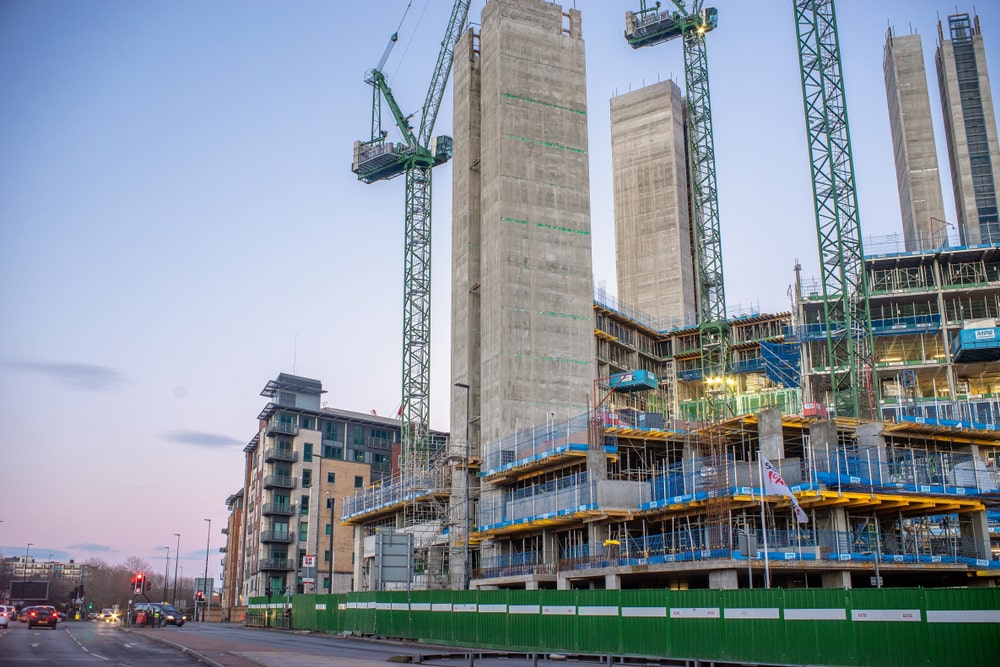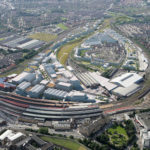News - Construction News
Infrastructure driving construction in 2019

Despite consistent inconsistency from the government over Brexit fraying the nerves of construction companies across the country, the industry has remained mostly consistent over the last two and a half years.
Most of the larger cities saw a record number of completed projects in 2018 and each city has a rich variety of ambitious projects still ongoing. But are ambitious new projects the real driving force of the industry? Are new projects faring more successfully or are developers leaning towards renovation to take advantage of the minimal space available in prime city locations.
The Deloitte crane survey of 2018 is positive about each of the five cities it covers: London, Manchester, Leeds, Belfast and Birmingham. Each city has big ticket projects underway, just beginning or coming to a close, but each city also has a huge amount of new space opening up in old locations, with a number of major renovation projects seeking to exploit the nostalgia element of their predecessors.
Each city has different needs and different objectives, but what’s the main driving force?
London
The largest infrastructure project in London right now is the development at Battersea Power Station. As developers work to bring to life a new hub on the edge of the Thames across the eight million square feet of land, this project is an interesting mix of major infrastructure and renovation. Developers have retained the iconic Grade II listed building at the centre of the new area, which will host hundreds of shops, restaurants and event spaces, as well as 46,000sq m of new Apple office space.
Manchester
As one of Deloitte’s ‘fastest growing cities in Europe’, Manchester stands out as a particular frontrunner in new developments. The twin buildings at Deansgate Square and the development which will soon be starting at Angel Meadow Park will dwarf Beetham Tower, currently the tallest building in the city.
Manchester is less strapped for space, meaning developers are free to keep building from scratch in the heart of the city and major renovation projects are not so significant to the life of the industry.
Leeds
Leeds is about to undertake the largest infrastructure project in the city for over 100 years across the city centre, spanning 27Msq ft of land in total. This will include a 40-storey skyscraper which will take the title of tallest building in the city and a number of projects breaking ground at Holbeck in the near future.
However, Leeds is also set to regenerate their train station in anticipation for HS2. This £500M investment will accommodate over 60 million passengers a year and seeks to maintain Leeds’ reputation as the busiest train station in the North.
In Leeds, the hugely ambitious South Bank project mixes new infrastructure and renovation in a feat that will double the size of Leeds city centre, showcasing the health and capabilities of its industry.
Belfast
The major developments in the Titanic Quarter of Belfast are coming to a close but the overall project is expected to conclude in 2034. New buildings such as the Belfast Metropolitan College campus and the Northern Ireland Science Park have helped the quarter shift the city’s centre of gravity and host 18,000 people at work, living or studying across eight million square feet.
Major renovation projects include hotels at Crumlin Road Courthouse and the War Memorial building. This, coupled with the Titanic Museum and Titanic Hotel, show how the city is combining its exciting future with its long standing heritage to drive infrastructure.
Birmingham
Particularly in hotel space, Birmingham has a much larger focus on renovation, with plans to build on the old House of Fraser store in the city centre and adding almost 100 rooms to the Royal Angus hotel. The old House of Fraser building stands at Cathedral Square and will be replaced with a 200-bed hotel, 365,000sq ft of office space and 60,000sq ft of retail space.
One of the largest projects in the city, the Paradise Project, plans to introduce ten new buildings across the city. This project was halted recently due to a £51M shortfall but has now been restarted following a bail out by the council.
While new builds still contribute massively to the health of the industry, this suspension of activity will have cost the developers dearly, suggesting that renovation has more to offer in terms of stability.
Each of these cities has their own blueprint for construction depending on space, investment and history, but each is still able to balance new builds with renovations to sustain the industry even during economic instability.
This article was written by Damon Culbert from Lift Mini Cranes Ltd, mini and spider crane hire across the UK.
If you would like to read more articles like this then please click here.
Related Articles
More News
- £8Bn to be invested in flood defences over the next decade
27 Jun 25
A record £7.9Bn over ten years has been committed to flood defences.
- Boosting British jobs and skills key for firms to win major infrastructure projects
26 Jun 25
Creating high quality British jobs and boosting skills in local communities will be key requirements
- Major rail supply deal to protect thousands of British Steel jobs
25 Jun 25
Thousands of British manufacturing jobs have been secured as the Transport Secretary finalises a major






